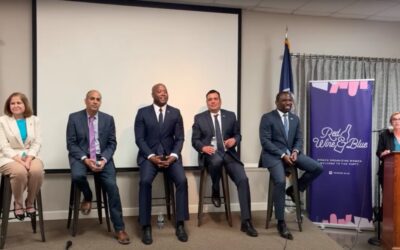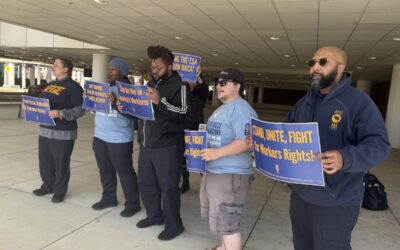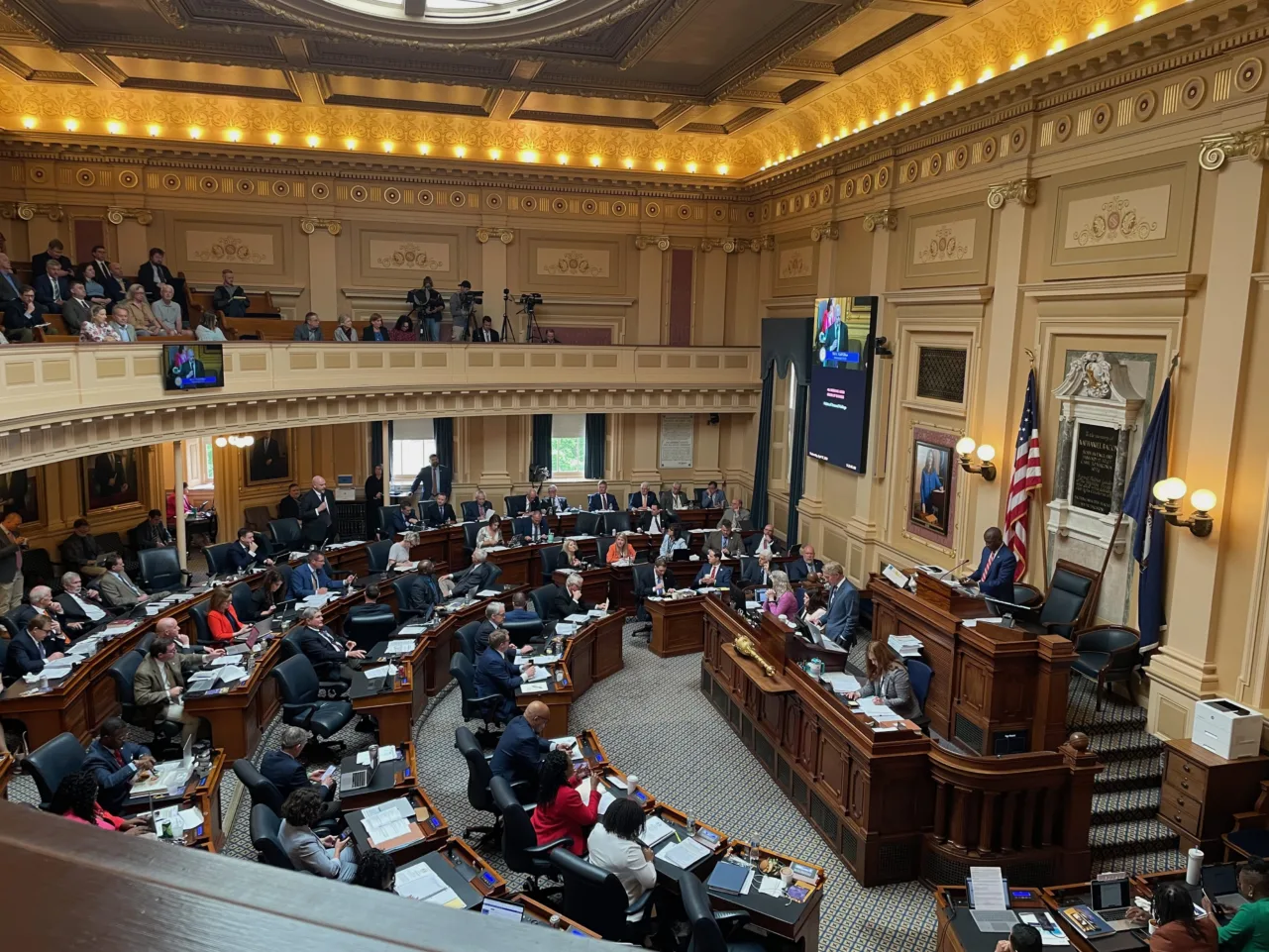
The House of Delegates Chamber in Virginia's General Assembly building. (Michael O'Connor/Dogwood)
Virginia is one of 12 states that doesn’t allow state employees to collectively bargain, a new report says.
A state lawmaker will again make a push to expand collective bargaining rights for public-sector employees as a new report highlights the urgency of doing so in Virginia.
State Del. Kathy Tran (D-Springfield) plans to file legislation in the upcoming General Assembly session to allow state and local government employees to engage in collective bargaining. Tran did so earlier this year in the 2025 General Assembly session, but Republican Gov. Glenn Youngkin vetoed the bill.
Expanding these rights to state and local employees would help them secure protections at a time when federal civil servants are under attack, Tran said in an interview.
“At the end of the day, this is about improving workers’ lives and improving our constituents’ lives,” Tran said. “I hope that’s what my fellow members consider when they have this bill in front of them.”
The Commonwealth Institute of Fiscal Analysis (TCI), a Virginia nonpartisan research and advocacy organization, published a new report that articulates how allowing state employees to collectively bargain could help with high vacancy and turnover rates in government offices and bolster racial and gender equity. Virginia’s state workforce is majority women and nearly a quarter Black, TCI’s report says.
For generations, public employment has been a path to stability and economic mobility for Black workers, particularly in Southern states like Virginia, and denying state workers the right to collective bargaining undermines that legacy, said Sophie McGinley, a labor policy analyst at TCI and author of the report.
“If we’re serious about closing racial and gender pay gaps, then ensuring women and Black Virginians have a seat at the table is essential,” McGinley said in an interview.
Virginia is one of 12 states that does not allow its state employees to collectively bargain, according to TCI. A growing number of local government and school employees have won the right to negotiate after a 2020 law allowed for localities and school boards to pass ordinances allowing them to do so.
But some – like the school board in Manassas – have passed ordinances prohibiting contract negotiations, contributing to a patchwork system where jurisdictions with collective bargaining agreements are attracting talent away from places without them.
One of the biggest challenges to expanding these rights in Virginia is a widespread misunderstanding of what is up for discussion. Tran’s bill would not allow public employees to strike, and any pay raises that are agreed to would still be subject to General Assembly approval.
“The goal of collective bargaining is not confrontation — it’s problem-solving,” the TCI report says. “A well-functioning collective bargaining relationship creates stability, predictability, and accountability for both employees and public agencies.”
Allowing for collective bargaining could address longstanding problems within Virginia’s state workforce. TCI’s report found that state agencies face issues hiring as a result of unpredictable raises, below-market pay, and staff burnout.
“Across states with strong legal frameworks for public employee bargaining, the evidence shows that this process leads to improved retention, more equitable compensation systems, and better communication between frontline workers and leadership,” the report says.
TCI also notes that Tran’s bill would not have allowed legislative staff members to collectively bargain, but suggests it could be something worth considering. Aides who support Virginia lawmakers with research, scheduling, and dealing with constituents often work long hours with limited job security.
More broadly, as Virginia reels from the Trump administration’s attacks on its federal workers, state lawmakers have a chance to show they support employees who allow so many critical services to function.
“Virginia has this opportunity to lead by valuing and protecting its own public workforce,” McGinley said.
Support Our Cause
Thank you for taking the time to read our work. Before you go, we hope you'll consider supporting our values-driven journalism, which has always strived to make clear what's really at stake for Virginians and our future.
Since day one, our goal here at Dogwood has always been to empower people across the commonwealth with fact-based news and information. We believe that when people are armed with knowledge about what's happening in their local, state, and federal governments—including who is working on their behalf and who is actively trying to block efforts aimed at improving the daily lives of Virginia families—they will be inspired to become civically engaged.

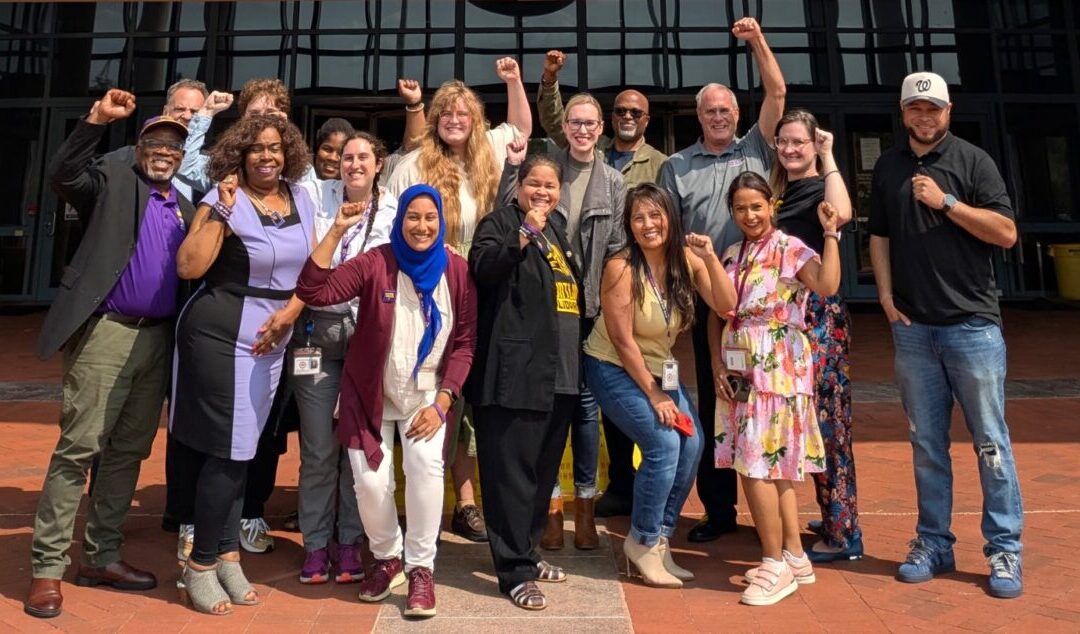
Fairfax County workers closing in on first union contract
Thousands of Fairfax County government employees will soon vote on whether to ratify their first union contract. Thousands of local government...

Earle-Sears failed to secure police group endorsement. Here’s why
Republican gubernatorial candidate Lt. Gov. Winsome Earle-Sears did not impress in her endorsement interview with the Virginia Police Benevolent...
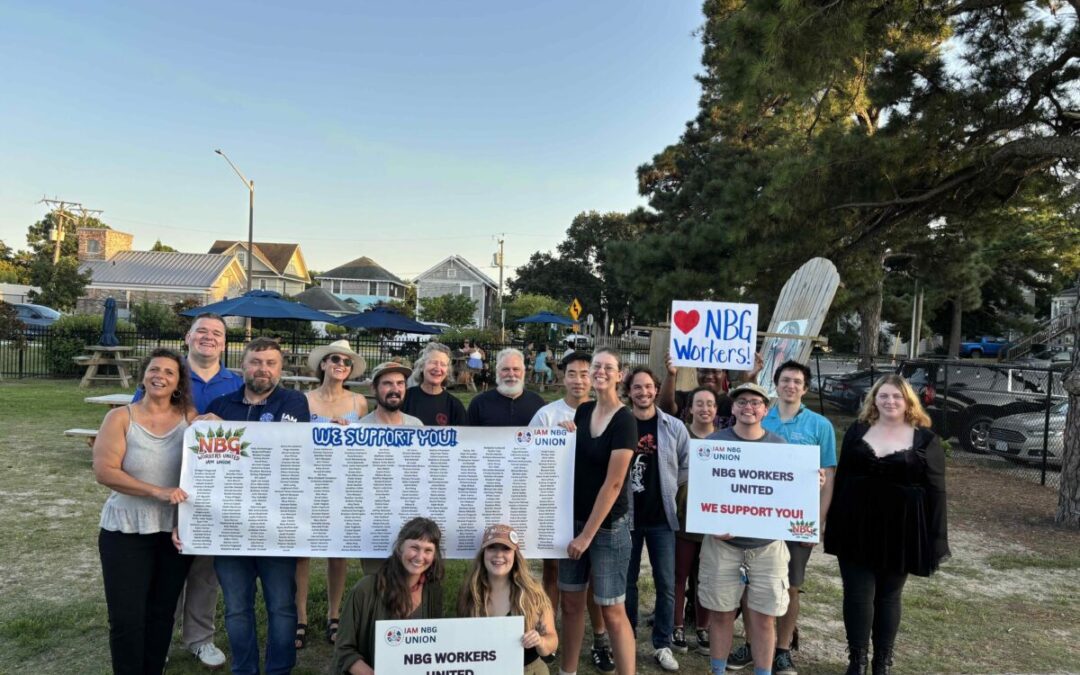
Norfolk Botanical Garden worker: Union push ‘brought us all together’
It marks at least the second botanical garden in Virginia that has formed a union. Sage grew up in Norfolk never having set foot in the city’s...

Earle-Sears refuses to say if Trump’s federal job cuts are bad for Virginia
The Republican nominee for Virginia governor dodged repeated questions about her position on the Trump administration’s federal workforce cuts in an...
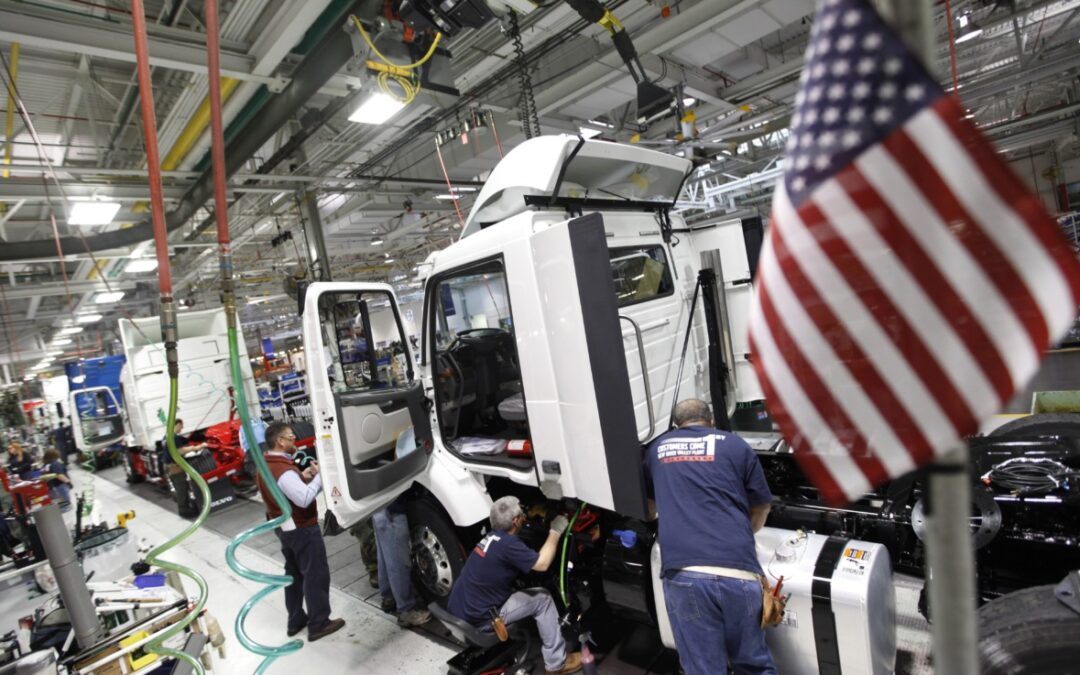
Rising unemployment, Trump cuts fuel uncertainty about Virginia economy
A University of Virginia economist warns that if Virginia’s unemployment rate keeps rising it could strain state resources. New figures released...

Meet the pro-union Chesapeake progressive running in a Republican district
Democrat Rodney Nickens Jr. says Virginia’s “right-to-work” law has got to go as he campaigns in a conservative House of Delegates district. A...



